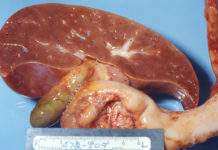
Even low amounts of exposure to passive or secondhand smoke linked to higher risk of kidney disease
A new study has revealed a link between exposure to secondhand smoke and the development of chronic kidney disease (CKD).
This study, provides additional rationale for strengthening public smoking restriction policies and supporting educational programs about the harms of secondhand smoke. It was published this week in the Clinical Journal of the American Society of Nephrology(CJASN).
According to CDC, secondhand smoke is the combination of smoke from the burning end of a cigarette and the smoke breathed out by smokers.
“Secondhand smoke exposure at home or in the workplace is still prevalent despite legislative actions prohibiting public smoking. This exposure was found to be clearly related with CKD, even with less-frequent amounts of secondhand smoke exposure
Health hazards of secondhand smoke includes :
- Secondhand smoke causes numerous health problems in infants and children, including more frequent and severe asthma attacks, respiratory infections, ear infections, and sudden infant death syndrome (SIDS).
- Smoking during pregnancy results in more than 1,000 infant deaths annually.
- Some of the health conditions caused by secondhand smoke in adults include coronary heart disease, stroke, and lung cancer.
A team of researchers from Korea conducted a study to investigate the association between secondhand smoke exposure and CKD in adults who had never smoked.
The study included 131,196 never-smokers who participated in the Korean Genome and Epidemiology Study from 2001 to 2014. Participants were classified into 3 groups based on frequency of secondhand smoke exposure as assessed with survey questionnaires:
- No-exposure
- Less than 3 days per week of exposure
- 3 or more days per week of exposure
Participants with less than 3 days per week and those with 3 or more days per week of exposure had 1.48-times and 1.44-times higher odds of having CKD when compared with participants with no secondhand cigarette exposure.
The researchers also assessed the risk of receiving a new diagnosis of CKD over an average follow-up of 8.7 years among 1,948 participants. Compared with the no-exposure group, the risk for developing CKD was 66% and 59% higher in participants with 3 or more days per week and less than 3 days per week of exposure, respectively.
“Secondhand smoke exposure at home or in the workplace is still prevalent despite legislative actions prohibiting public smoking. This exposure was found to be clearly related with CKD, even with less-frequent amounts of secondhand smoke exposure,” said co-author Dr. Jung Tak Park, MD, PhD, Yonsei University College of Medicine.













